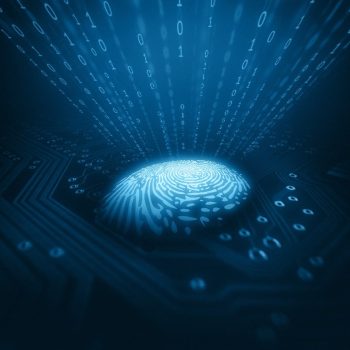
A democracy offers many rights and freedoms to the people who live in it. Guaranteeing and protecting this is the task of the state. Exterro explains how IT forensics can help with digital forensic examinations of data carriers, IT systems and communication links.
Smartphones, computers, instant messengers and online services have changed the work of the Office for the Protection of the Constitution, police authorities and other federal and state bodies. In order to protect the free-democratic basic order and to ensure the peaceful coexistence of people, they increasingly need solutions for IT forensics. Exterro, provider of legal GRC software that combines e-discovery, digital forensics, data protection and cybersecurity compliance, lists the main areas of application for forensics tools in this area:
Defense against enemies of democracy
Freedoms enjoyed by people in a democracy include freedom of expression, assembly and demonstration. For example, everyone has the right to publicly criticize democracy itself. However, a democracy must defend itself against persons and organizations who actively advocate its abolition. The forensic examination of confiscated data carriers as well as information from the cloud and telecommunications networks helps in this regard, as does the monitoring of suspects' communications. With the information obtained, authorities such as the Federal Office for the Protection of the Constitution can identify the people involved in anti-democratic planning and actions, reveal their specific intentions and provide court-proof evidence of the actions taken.
Protection of critical infrastructure
Certain goods and services such as water, electricity, food and the treatment of sick people are essential for the functioning of society and thus for the stability of the state. Because of this enormous importance, the critical infrastructures that ensure the supply of these goods and services are particularly targeted by cybercriminals. Unfortunately, not every attack can be repelled. Therefore, the infrastructure operators and authorities such as the BSI (Federal Institute for Information Security) rely on forensic tools to trace the paths of the intruders and to identify all systems and data affected. This is the only way they can remove everything left behind by the attackers, restore systems and data, and close the gateways for the future.
protection of personal rights
People's personal things and affairs are protected in a democracy by personal rights. Among other things, they should prevent third parties from publishing private photos and videos without permission, companies from misusing customer data or criminals from stealing the identities of citizens. Since most such privacy violations today take place in the digital world, data protection and law enforcement agencies need modern forensic investigation tools to prove data leakage and abuse. However, the solutions also help companies to uncover data protection violations and report them within the specified deadlines.
protection of the economic system
A stable democracy needs a smoothly and fairly functioning economic and financial system. Authorities such as BaFin, antitrust authorities and customs therefore have the task of preventing, for example, financial fraud, corruption, cartel agreements and undeclared work, which stand in the way of equal competition. Forensic tools assist them in investigating complaints and securing evidence of violations of applicable laws. In this way, they ensure the integrity of the economic and financial system, without which a democratic state cannot function.
More at Exterro.com[exterro]
